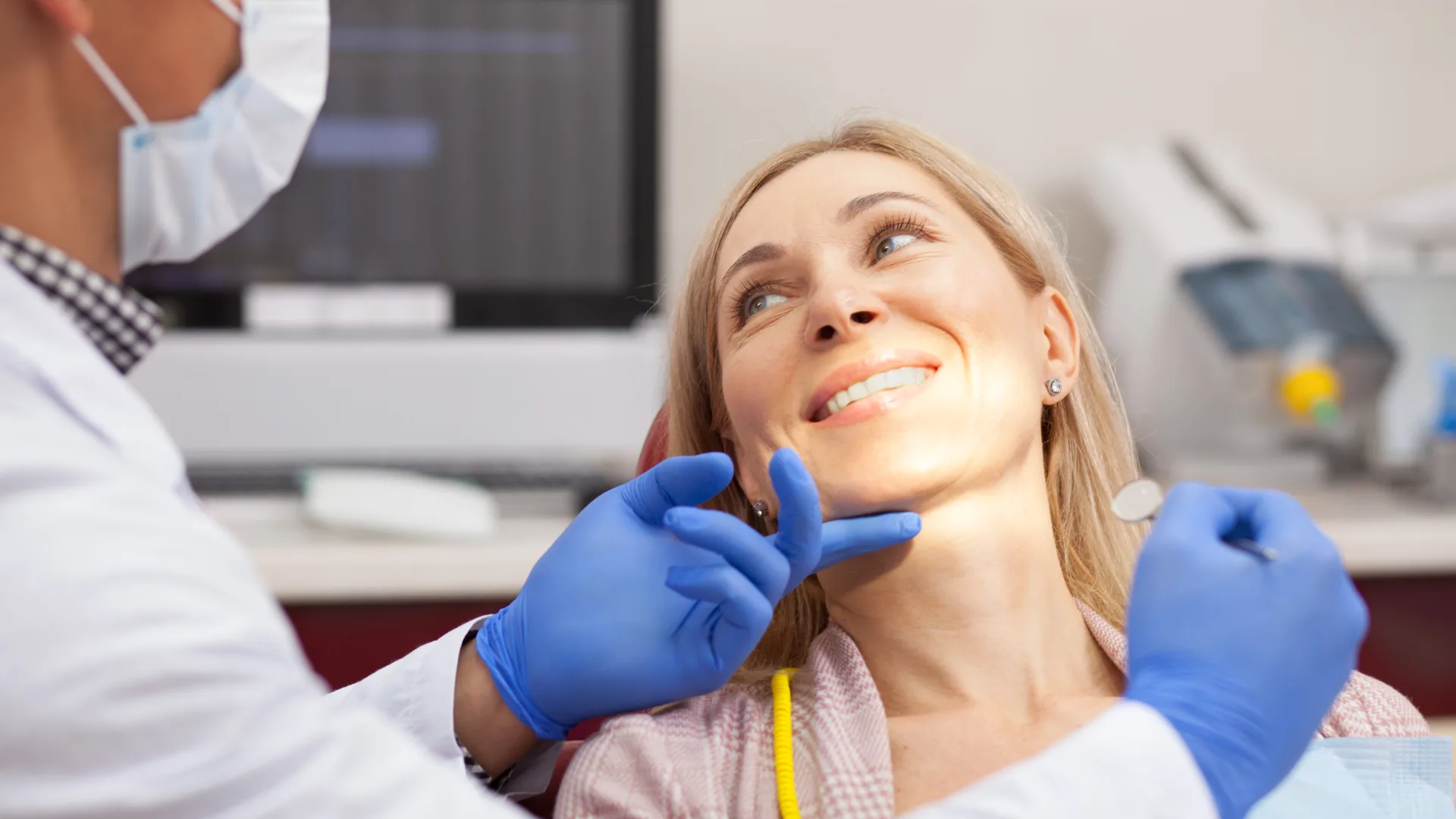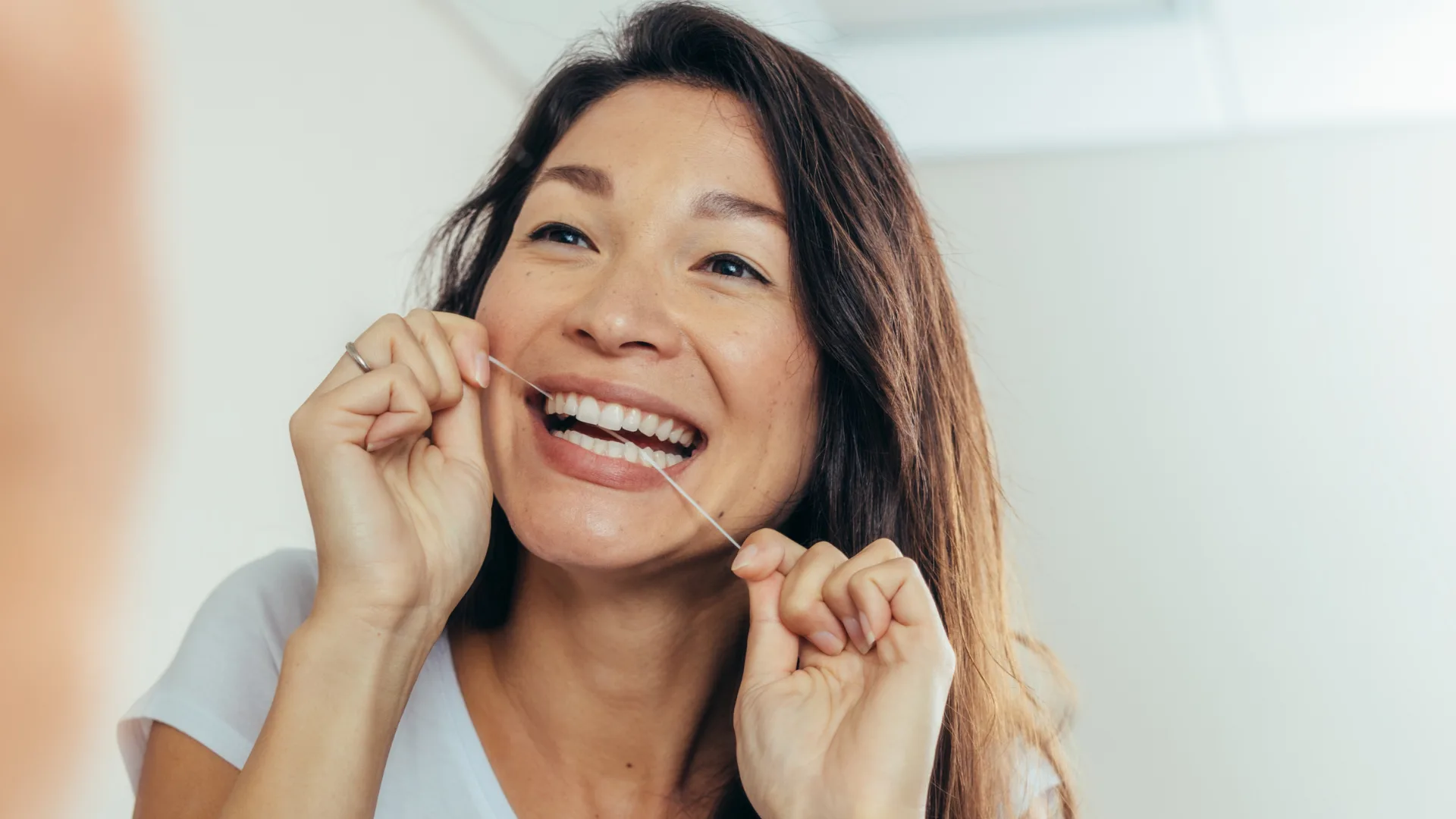When we think of menopause symptoms, hot flushes, weight changes, and mood swings usually top the list. But there’s another area that often gets overlooked: your mouth.
“A drop in oestrogen can lead to less saliva production, which allows bacteria to thrive,” explains Dr Gamer Verdian, co-owner of Dental Lounge Sydney and co-founder of Dental 99.
“Some women will start to notice receding gums and some tooth movement because the bones become less dense. That can lead to minor issues like bad breath but also to more serious problems with sensitivity and loose teeth.”
The most common signs to watch out for
Menopause can affect every part of the mouth. When oestrogen dips, the gums and salivary glands suffer. This might show up as:
- Swollen or bleeding gums.
- Increased sensitivity.
- Dry mouth.
- A persistent metallic or ‘off’ taste.
- Faster plaque buildup.
- A burning or tingling sensation in the tongue or lips.
“If any of these signals persist for more than a fortnight, it is wise to enlist your dentist rather than blaming last night’s spicy dinner,” says Dr Verdian.

How hormones impact your gums, teeth and oral microbiome
Your gums and jawbone are rich in oestrogen receptors. When your hormones take a dive, they do too.
“Oestrogen receptors pepper the gingiva, salivary glands and alveolar bone,” says Dr Verdian. “When circulating oestrogen evaporates, collagen synthesis stalls, vascular reactivity rises, and bone turnover skews toward resorption.”
In other words, your gums thin, inflammation worsens, and you’re at greater risk of periodontitis and bone loss in the jaw.
Recent studies have shown that the oral microbiome also undergoes changes during menopause. The good bacteria decrease, creating a more pro-inflammatory and disease-prone environment.
Dealing with a dry mouth
Saliva is one of your body’s best natural defences. It washes away bacteria, neutralises acid, delivers minerals to your teeth and keeps your mouth lubricated. But when saliva production slows down, problems start to snowball.
Acids sit on enamel longer, increasing the risk of root decay, especially on newly exposed areas where gums have receded. This can lead to a higher risk of cavities and periodontal disease, plus potential challenges with chewing, swallowing, and even speaking.
What’s more, dry, cracked tissue can also invite fungal infections like oral thrush and make dentures uncomfortable to wear. To keep saliva flowing, Dr Verdian recommends “drinking more water, limiting caffeine and chewing sugar-free gum”.
Why your mouth might be burning
Burning Mouth Syndrome – that scalded feeling some women describe on their tongue, lips or palate – is a real and painful menopause symptom.
“It’s thought to be a perfect storm of nervous system and hormonal changes,” says Dr Verdian. “Reduced oestrogen lowers pain-modulating endorphins and alters nerve-pain thresholds, while dry mouth strips away the protective salivary film.”
The condition affects around a third of post-menopausal women and tends to peak alongside hot flushes. Thankfully, treatments exist, including salivary stimulants, topical medications and, in some cases, hormone therapy.

The other kind of thrush
Fluctuating hormone levels can lead to an overgrowth of fungus, also known as oral thrush, which can affect taste and cause mouth sores.
“Rinsing with warm salt water and brushing and flossing twice daily can help, but see your dentist in case you need an antifungal medication,” says Dr Verdian.
What to ask your dentist during menopause
Menopause is a time when it pays to be proactive, especially when it comes to your teeth. While twice-yearly check-ups are fine for most, Dr Verdian suggests women going through perimenopause and menopause consider visiting every three to six months.
At your appointment, ask:
- “Have my gums or bone levels changed since my last visit?” (This helps catch early signs of bone or tissue loss linked to hormone changes.)
- “Can we do a saliva or pH test today?” (A quick spit test can show if you’re at risk for tooth decay.)
- “Based on my medications, would a stronger fluoride or calcium rinse help protect my teeth?” (Some medications can cause dry mouth, which increases your risk of decay. Stronger rinses can help keep your enamel healthy.)
- “Do you see signs of grinding or enamel wear that might call for a night-guard?” (Hormonal shifts and stress can lead to clenching or grinding, which wears down your teeth – a night-guard can help prevent damage.)
“And always bring an updated list of medications,” Dr Verdian adds. “Your clinician’s crystal ball is still on back order.”
If you’re experiencing ongoing oral health issues during menopause, speak with your dentist or GP to help develop a treatment plan tailored to your needs.

